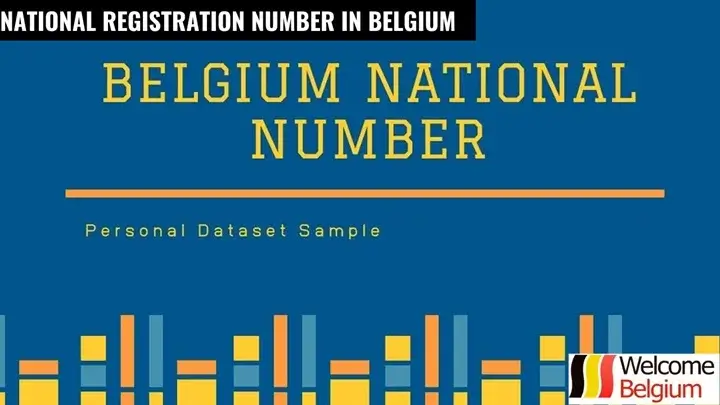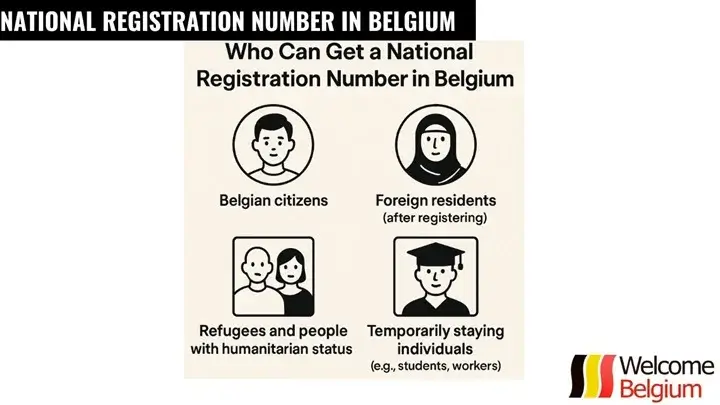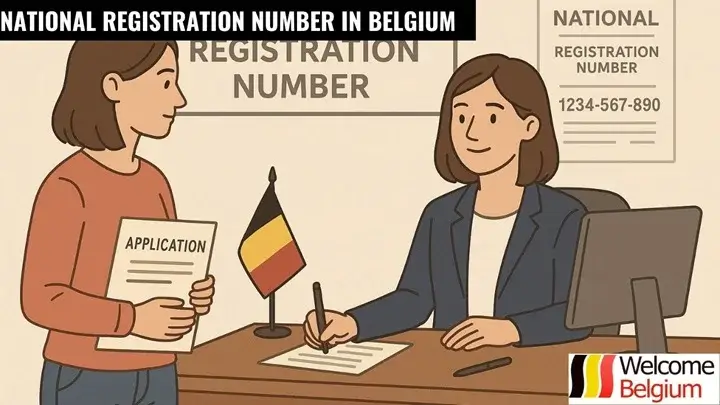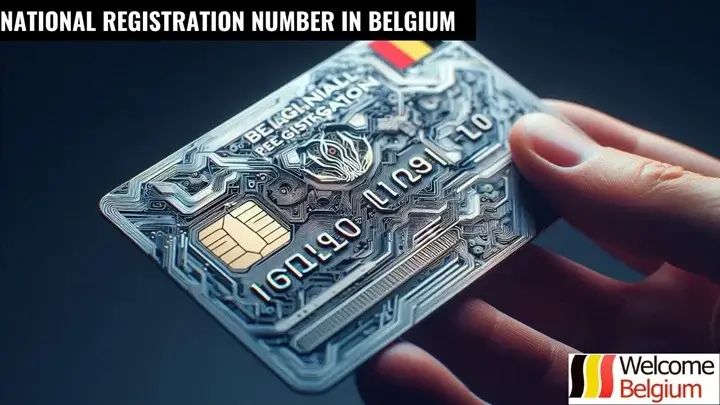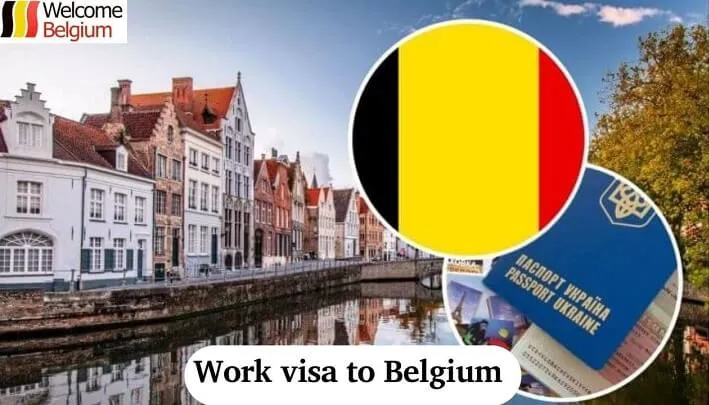If you live in Belgium or plan to move to the land of waffles and bureaucracy, you will definitely need a Belgian national registration number. Without it, you can’t register at the commune, visit a doctor, or work. This number acts as a key to all public services — from opening a bank account to receiving social benefits. This article explains who can get it, how the process works, and the difference between the regular number and the temporary BIS number.
What is a National Registration Number in Belgium?
The national registration number is a unique identifier assigned to every person officially registered in Belgium. It is used to verify identity and access public and administrative services. This number is necessary to work legally, pay taxes, use health insurance, and receive social benefits.
The Belgian national number consists of 11 digits and looks like this: YYMMDD-XXX-CC, where the first six digits represent the birth date, the next three are a serial number, and the last two are a checksum. This format allows easy identification in social security and tax systems.
Can’t get asylum in Belgium? Check out tips for registering in the country.
How to recognize the national registration number in Belgium:
- Consists of 11 digits in the format YYMMDD-XXX-CC
- The first 6 digits represent the birth date: year, month, day
- The next 3 digits are a unique serial number assigned at registration
- The last 2 digits are a checksum to verify the number’s accuracy
- Assigned to everyone officially registered in the National Register of Residents
- Used for identification in tax, social, and medical systems
- Not to be confused with the BIS number — a temporary ID for non-residents
- Different from company numbers or VAT identification numbers
- Printed on the electronic ID card of residents
- Required for most public services, employment, and social benefits
This personal code is stored in the National Register of Residents and is requested by almost all institutions: banks, hospitals, universities, insurance companies, and government agencies. Without it, you’re practically without a passport in Belgium.
Important: Without a national number in Belgium, it is impossible to get most important documents or social services.
Who Gets a National Registration Number
The national registration number is assigned not only to Belgian citizens but also to foreigners officially residing in the country. However, those who cannot get a national number include tourists, foreigners without legal residence status, transit passengers, and those not registered in a Belgian commune. They are only eligible for a temporary BIS number at best.
The national number can be issued to:
- Belgian citizens (automatically at birth)
- Foreigners with a residence permit (after registration at the commune)
- Refugees and people with humanitarian status
- Temporary residents (e.g., students, workers, business travelers) — receive a BIS number if they lack permanent registration
Permanent registration means you are entered into the National Register — then you get the regular national registration number.
Learn how to properly apply for social benefits in Belgium.
Temporary registration means you stay in Belgium without a residence permit (or for a short period) and get a BIS number, which can later be replaced by a full national number if your status changes.
Example:
In March 2022, a family from Kyiv arrived in Belgium after the full-scale Russian invasion of Ukraine. They were granted temporary protection in Brussels but did not have a national registration number at that time. Without it, they couldn’t get health insurance, open a bank account, or apply for social assistance. Only two weeks later, after registering in the Schaerbeek commune and entering the National Register, they were issued a national number. From then on, the family could access healthcare, receive benefits from CPAS, and enroll their child in a local school. This case shows how critical it is to get the number as early as possible.
For foreigners, obtaining the number is a mandatory step toward legal life, work, taxes, and healthcare.
Important: If you are not registered in a commune, no official body in Belgium will issue you a national number.
How to Get a National Registration Number in Belgium
Before applying at the commune to get your national registration number, it’s important to prepare all the necessary documents. The most crucial thing is to have a valid passport and legal grounds to stay in Belgium: a visa, proof of temporary protection, or a residence permit for study or work. You will also need proof of residence — this could be a rental contract, a letter from the property owner, or a certificate from a dormitory. For some categories, like students or workers, additional documents may be required: a certificate from the university or an employment contract.
Learn more about OCMW/CPAS — the public social assistance center.
Booking an appointment at the commune in advance is essential, because without a prior appointment, you won’t be accepted. Some communes only accept online bookings, and the waiting list may be several weeks long. You should also be ready for police visit to check that you actually live at the declared address. Only after this visit can the ID card and the national number be issued.
Without confirmed address and a complete document package, the commune cannot register you in the National Register.
To get your national number, you need to register officially at the commune of your place of residence. The procedure includes several steps:
- Book an appointment at the commune (in person or online)
- Submit documents: passport, visa (if required), housing contract, employer’s certificate or refugee/student status papers
- Address verification by police — an officer will come to confirm you really live at the stated address
- Issuance of a resident ID card (or temporary residence card)
- Assignment of the national registration number — it automatically appears in the database and is printed on your ID card
After submitting all documents and registering at the commune, the national number is usually issued within 2–4 weeks. During this time, local services verify your data, confirm the address, and enter you in the National Register. Sometimes the process takes longer due to workload or unusual cases.
If your application is rejected, the first step is to find out the exact reason. It’s often because of missing proof of residence or incomplete documents. In such cases, fix the problem quickly — for example, provide a rental contract or additional ID. If the refusal seems unjustified, you can ask for help from a commune advisor, migration office, or a migration lawyer. You can reapply after addressing the issues.
Example:
In June 2023, a young specialist from Tunisia came to Ghent on a work visa, having signed a contract with a Belgian IT company. He rented an apartment via Airbnb for the first period, but when he tried to register at the commune, he was refused — temporary housing wasn’t accepted as valid proof. The administration required a long-term rental contract.
The man urgently found permanent accommodation, signed a contract, and only then could complete the registration. He had also booked an appointment online, but the earliest available date was 12 days later. All this delayed his national number registration, and without it, he couldn’t open a bank account or get insurance. This case shows that without real proof of address and a full document package, registration is impossible — even if you have a visa and a job.
What’s the Difference Between a BIS Number and a National Number in Belgium?
A BIS number is a temporary ID given to foreigners not registered in the National Register but who must deal with Belgian authorities — temporary workers, students without residence permits, tourists with paperwork, or people waiting for registration.
Comparison Table:
| Parameter | BIS Number | National Number |
| Who receives it | Foreigners without commune registration, temp workers, tourists | Belgian citizens, registered foreigners |
| Status | Temporary, non-resident | Permanent resident ID |
| Purpose | Limited: taxes, health insurance, temporary work | Full access to all public and social services |
| How it’s issued | Without municipal registration | Requires official commune registration |
| Validity period | Limited, until permanent number is granted | Permanent, lifelong |
| Access to social benefits | Limited or none | Full access |
| Tax use | Yes | Yes |
| Linked to ID card | No | Yes, shown on ID card |
To switch from a BIS number to a national number, you must register with the commune, confirm your legal status and address. Then, your BIS is replaced by a permanent number.
To check your national registration number in Belgium, the best way is to use the official population service portal. There, you can verify the current status and accuracy of your number through your personal account. Here’s the link to the official website where you can do this: https://www.mybelgium.be. If needed, detailed instructions and support are available.
Note: If you only have a BIS number, most benefits and services in Belgium stay inaccessible until you register and get a national number.
Where the National Registration Number is Used in Belgium
The national registration number plays an essential role in everyday life and employment in Belgium. It’s required to access healthcare and register for medical insurance, serves as a taxpayer ID for tax purposes, and is used in the social security system.
Examples of where the national number is used in Belgium:
- Healthcare: Required to register for health insurance (mutuelle/ziekenfonds), book doctor appointments, and receive medical services. Without it, you cannot access the healthcare system.
- Taxes: Used to identify the taxpayer when filing returns and calculating taxes with the Belgian tax authorities.
- Employment: Employers use the number for official hiring, payroll processing, and calculating taxes and social contributions.
- Banking: Necessary to open a bank account or apply for a loan, as it confirms your identity and resident status.
- Social benefits: Needed to receive unemployment benefits, child allowances, pensions, and other social support.
- Education: Schools and universities use it to manage student records and access public education programs.
- Public services: Required when applying for residence permits, passports, driver’s licenses, and other government documents.
Without a national registration number, accessing most public services and social programs is nearly impossible, as it functions as your primary identity number in Belgium.
Tip: Don’t delay getting your national number — many essential procedures in Belgium turn into a real quest without it.
What to do if your national number is not assigned or lost
If your national number was not assigned or you lost it, it’s important to start the recovery process as soon as possible. First, contact the commune where you registered and submit an application for re-issuance of the number or a duplicate ID card. In some cases, additional documents may be required to confirm your identity and status.
Living and working in Belgium without a national number is extremely difficult — many employers and government bodies require it for official documents and social benefits. Without the number, access to healthcare, social benefits, and tax procedures may be limited.
Steps to restore your national registration number in Belgium:
- Contact the commune where you registered or should have registered and explain the situation.
- Submit an application for recovery of the number or a duplicate ID card.
- Provide necessary documents proving identity and legal residence status.
- Wait for data verification and record restoration in the Population Register (usually takes a few weeks).
- Receive a temporary identity document while the number is being restored.
- Receive the new national registration number after the procedure is completed.
- If problems arise, seek help from migration organizations or legal services for support.
If you face issues with registration or receiving the number, contacting migration organizations or advisory services can help file complaints and resolve issues with the commune.
Obtaining and keeping your national registration number in Belgium is a key step for comfortable life and full participation in the social, labor, and tax system. This number opens doors to healthcare, official employment, and government benefits. Temporary numbers like BIS also play a role, but the real national number is your foundation for stability and security. Don’t delay its issuance or restoration — without it, many rights and opportunities remain closed. Stay ahead — monitor your status and address registration matters timely.

